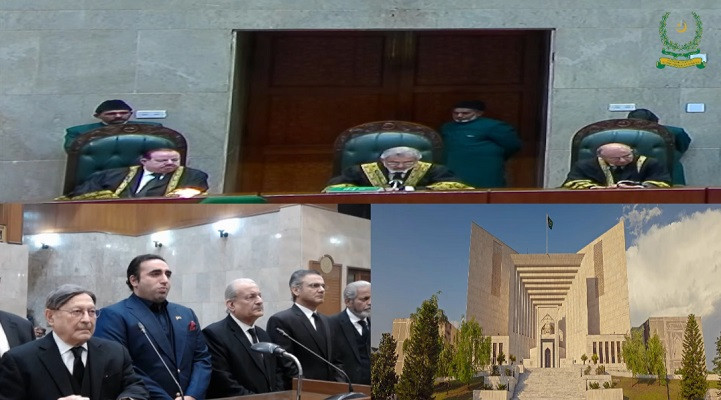ghazi52
Think Tank Analyst
- Mar 21, 2007
- 114,253
- 165,268
- Country of Origin

- Country of Residence

Chief Justice of Pakistan (CJP) Qazi Faez Isa comes to ECP’s rescue on reserved seats
Nasir IqbalJuly 2, 2024
• Top judge notes court can only intervene if commission crosses constitutional boundaries
• Says apex court won’t review conduct of polls unless it is presented with specific case concerning rigging
• SC asks ECP to calculate reserved seats with and without independents, to understand impact on election results
ISLAMABAD: Amid intense questioning, Chief Justice of Pakistan (CJP) Qazi Faez Isa came to the rescue of the Election Commission of Pakistan (ECP) on Monday by reminding that the commission was not a subordinate institution to the Supreme Court or the government but an independent authority conferred with a constitutional role to conduct elections.
The Supreme Court can only exercise its jurisdiction if it is convinced that the commission has gone beyond its constitutional role, the CJP highlighted, pointing out that ideally, all institutions should function within their own prescribed domain. The CJP was heading a full court of the Supreme Court hearing a set of appeals by the Sunni Ittehad Council (SIC) against the denial of reserved seats to women and non-Muslim candidates.
The Supreme Court ordered the ECP to do a calculation by applying the formula of allotting reserved seats among political parties on the basis of the election results of 2018 by excluding, as well as including, independents to understand the difference. The bench intends to understand the actual calculations of allocation of reserved seats applied to the results of the Feb 8, 2024, elections.
“Unfortunately, we go to the minutest of details as if we are sitting as an appellate court of ECP,” the CJP regretted, adding that unless the Supreme Court was seized with a particular case regarding actual rigging in elections at the lower level, the apex court could not review the conduct of the elections.


